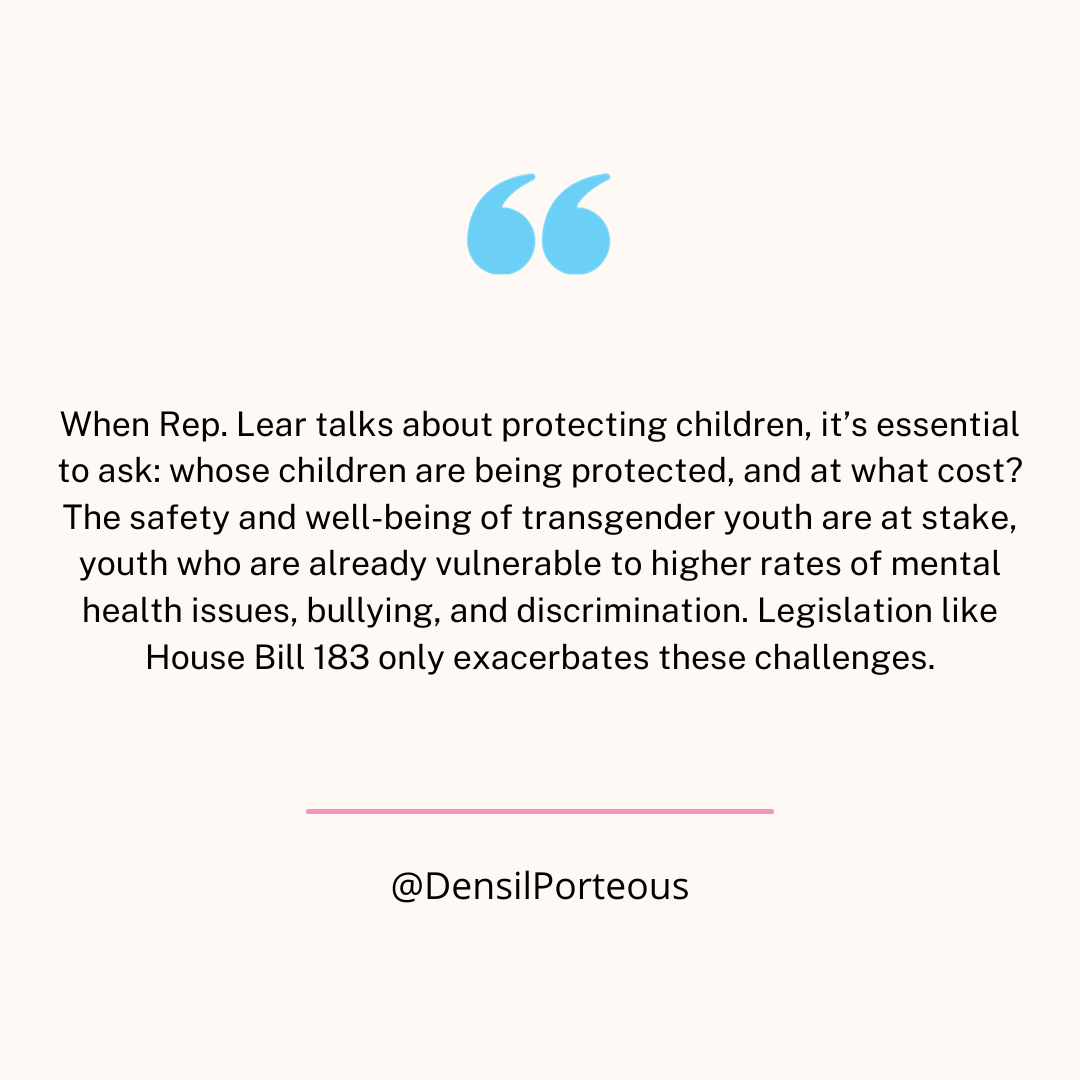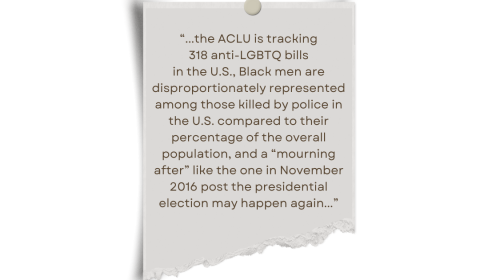In a recent House Higher Education Committee meeting, Ohio State Rep. Beth Lear likened gender dysphoria to delusions, comparing transgender individuals to people who believe they are birds. This comparison, made during discussions about House Bill 183 – a bill mandating bathroom usage based on sex assigned at birth in schools and colleges – is not just deeply offensive; it reveals a profound misunderstanding of gender identity and the challenges faced by transgender individuals. Rep. Lear not only trivializes the genuine struggles faced by transgender individuals but also stokes unfounded fears and prejudices.
House Bill 183, which Rep. Lear co-sponsors, is a move that echoes a broader pattern of legislation across the country aiming to marginalize transgender individuals. The bill’s proposal to ban K-12 schools and universities from having multi-use gender-neutral facilities is not just a direct attack on the dignity and rights of transgender people; it’s a step back in our collective journey towards inclusivity, understanding, and liberation.
Gender dysphoria is a recognized medical condition, where one’s emotional and psychological identity does not align with their birth sex. This is fundamentally different from fanciful or delusional thinking. The American Medical Association and numerous other medical and psychological bodies recognize this condition and advocate for the right of individuals to access care and facilities consistent with their gender identity. To equate this with delusional thinking is not only scientifically incorrect but also deeply harmful.
The narrative that transgender individuals are ‘confused’ or that accommodating their needs somehow endangers others is a myth that has been repeatedly debunked. It is a narrative that fosters discrimination and undermines the safety and well-being of transgender people, particularly young students who are most vulnerable to the effects of such stigmatization.
The opposition to this bill, which Rep. Lear dismissively suggests should be ‘drowned,’ represents a wide cross-section of society, including medical professionals, legal experts, educators, and most importantly, the transgender community itself. Their voices are not just dissenting opinions; they are a call to uphold basic human rights and dignity.
Rep. Joe Miller’s comparison of this bill to historical racial segregation policies is apt. Both are rooted in fear-mongering and misconceptions about a marginalized group. The argument for ‘safety,’ used to justify such discriminatory policies, is the same argument that once upheld racial segregation and now seeks to marginalize transgender individuals further.
The question posed by state Rep. Ismail Mohamed about why individual schools or districts should not decide their policies on this matter touches on an essential point of governance – the balance between state-wide legislation and local autonomy. Policies regarding gender identity and bathroom access are best handled at a local level, where schools and districts can address the specific needs and concerns of their communities.
When Rep. Lear talks about protecting children, it’s essential to ask: whose children are being protected, and at what cost? The safety and well-being of transgender youth are at stake, youth who are already vulnerable to higher rates of mental health issues, bullying, and discrimination. Legislation like House Bill 183 only exacerbates these challenges.
House Bill 183, as it stands, is not a testament to safety, but rather a reflection of the lack of understanding and empathy towards the transgender community. As lawmakers, it is crucial to base legislation on facts, compassion, and respect for human dignity, not on unfounded fears and misconceptions.
As Ohioans, and indeed as members of a society that values individual rights and freedoms, we must reject attempts to legislate discrimination under the guise of safety. We must recognize the power of our words and the impact of our policies. We owe it to our transgender community members – to our fellow human beings – to do better. To listen, to learn, and to legislate with empathy and understanding.
Ohio prides itself on being a state that values individual rights and freedoms. This bill, however, tells a different story – one where fear and misunderstanding trump compassion and understanding. As we move forward, it is imperative that we seek to educate ourselves, listen to the experiences of transgender individuals, and craft policies that uphold the dignity and rights of all Ohioans.
In the face of such divisive rhetoric, let us reaffirm our commitment to a society where all can live authentically, without fear. Let us stand together in defense of dignity, in defense of truth, and in defense of the rights of every individual to be who they are.









